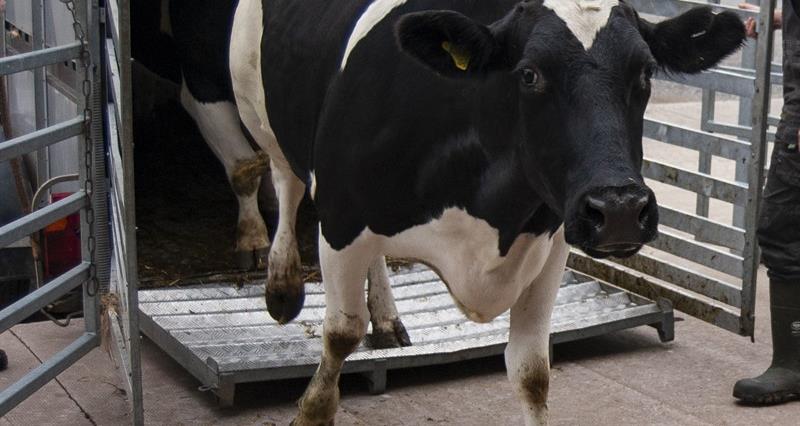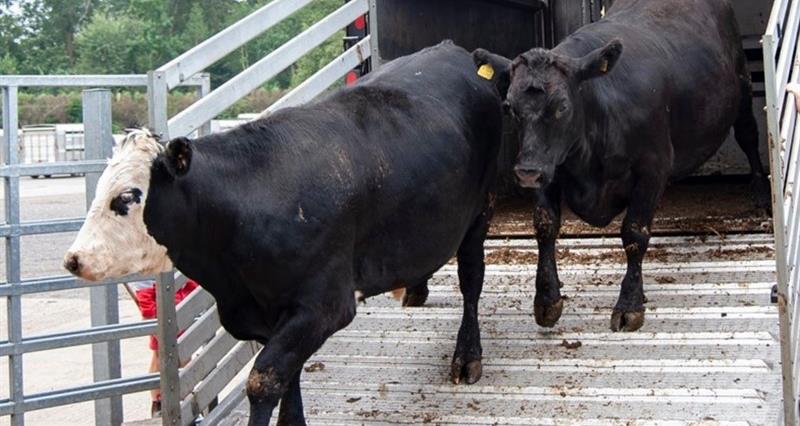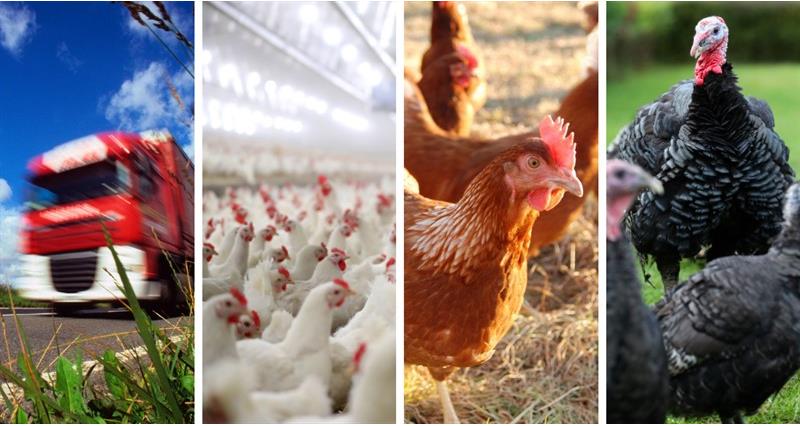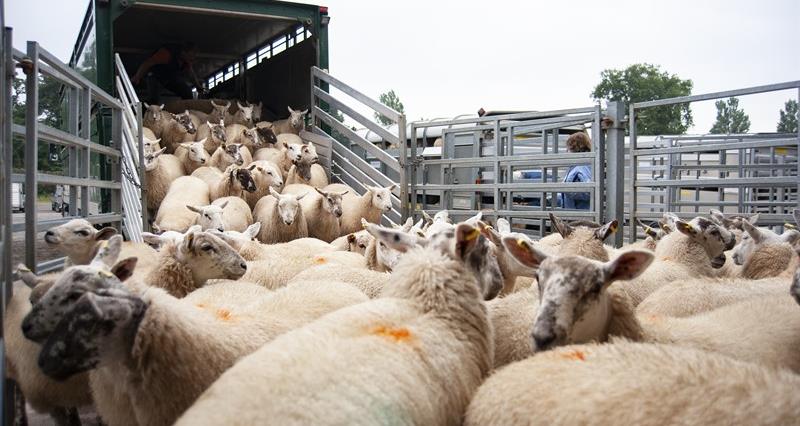Due to the extremely hot temperatures affecting much of the country, our advisers have put together a short page on the legal responsibilities related to temperatures during transportation, alongside the recommended guidance for best practice.
Good practice
We've put together the following steps to take to help you ensure good practice when transporting your livestock/birds.
1. Short journeys
Keep the journey as short as possible, and plan your route/time properly, according to weather condition and likelihood of delays.
2. Maintain airflow
Remember, passively ventilated vehicles (trailers with flaps and open-sided poultry trailers) only work when they are moving; therefore you should keep vehicles in motion wherever possible to maintain airflow. A standing vehicle will rapidly warm up to levels dangerous for welfare.
Reduce stocking density wherever possible, in the top and at the front of any multi-deck/module trailer and maximise manual or automatic ventilation systems. This includes removing curtains on poultry vehicles to ensure maximum air flow through the modules.
3. Meet the needs of your livestock/birds
Check livestock/birds during the journey and meet their needs (e.g. water) if safe to do so. Birds should not be disturbed but should be loaded, transported and unloaded without delay. Make sure the livestock/birds are fit to travel (e.g. not heavily pregnant or very young, ill or injured).
See our individual species pages for specific advice on cattle, sheep and poultry:
4. Avoid hottest times of the day
Avoid travelling at the hottest times of the day (usually from mid-morning through to mid-afternoon). Birds should be caught in the evening wherever possible so that they can be transported through the coolest parts of the day.
5. Due consideration
Give due consideration for animals with full fleece or heavy coats or pregnant by making further modifications to transport conditions (e.g. further reducing stocking density or avoid travelling altogether if possible).
Legal responsibilities
EU Law 1/2005 – Protection of animals during transport (which still applies in the UK)
- Means of transport must be maintained and operated to protect from extreme temperatures and adverse changes in climatic conditions.
- Animals must only be transported in conditions where temperature can be maintained within appropriate range for the entire journey, with regard for the species of animal.
- For all long journeys of more than 8 hours (derogated to more than 12 hours by UK law):
- Water supply within the container to be provided whenever necessary and so that each animal may have access.
- Ventilation (passive or active) systems capable of maintaining temperatures between 5°c and 30°c +/- 5°c tolerance, when stationary or moving.
- Temperature monitoring systems.
Welfare of Animals Transport Order 2006 (England)
It is an offence to transport in ways which cause or are likely to cause unnecessary suffering (this includes hot weather).
Guidance issued in Summer 2022 states that animals must not be transported if the external temperature is more than 30°C, unless in a temperature-controlled vehicle. This impacts the legal responsibilities above, as it is something which transporters would reasonably be expected to know and be compliant with.
Transport in conditions, and by means appropriate, for the species concerned.
Welfare of Animals (Transport) (Wales) Order 2007
It is an offence to transport in ways which cause or are likely to cause unnecessary suffering (this includes hot weather).
What does this mean in practice?
Government guidance states animals must not be transported when the external temperature is more than 30°C. This supersedes the legal responsibility in EU law for temperature conditions related to ventilation systems at the upper limit.
There is no legal requirement to provide water for all journeys for animals, but transporters should make provision for stops on long journeys, where inbuilt drinkers are available, and for water to be available on arrival, on journeys of any length. Where transporters are in a position to do so, they should confirm that the animals have had ready access to water until their point of loading and prompt departure.
Birds should not be disturbed but should be loaded, transported and unloaded without delay.
Both active and passive ventilation systems will be challenged by the high ambient external temperatures, even when a vehicle is moving. Therefore, journeys should not be undertaken at the hottest times of the day.
Transportation of unacclimatised animals in very warm weather increases the likelihood of adverse consequences and places greater pressure on a transporter’s legal responsibility to protect welfare, which may unexpectedly be increased by factors outside their direct control e.g. traffic delays.
It is in no one’s interest to risk the welfare of the animal and in severe cases, heat stress can result in death.
APHA are focussing keenly on temperature related adverse welfare outcomes and compliance this summer. They are receiving routine reports from slaughterhouse vets of issues and will be conducting more inspections at markets and shows. They will be recording the temperature and weather conditions at the time of these inspections as evidence.
Further support and information
For further information, please refer to the government guidance linked below:
- GOV.UK | Extreme hot weather guidance for Transporters and Organisers of live animal transport by road
- GOV.UK | Extreme hot weather guidance for Transporters and Organisers of live animal transport by sea
- GOV.UK | Farm animals: looking after their welfare
- GOV.UK | Keeping farm animals and horses in extreme weather



